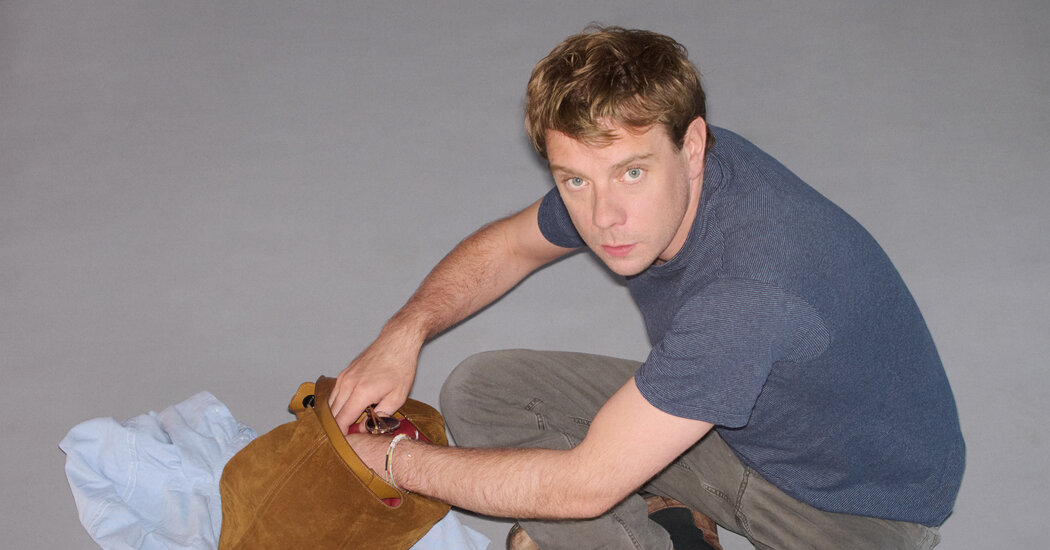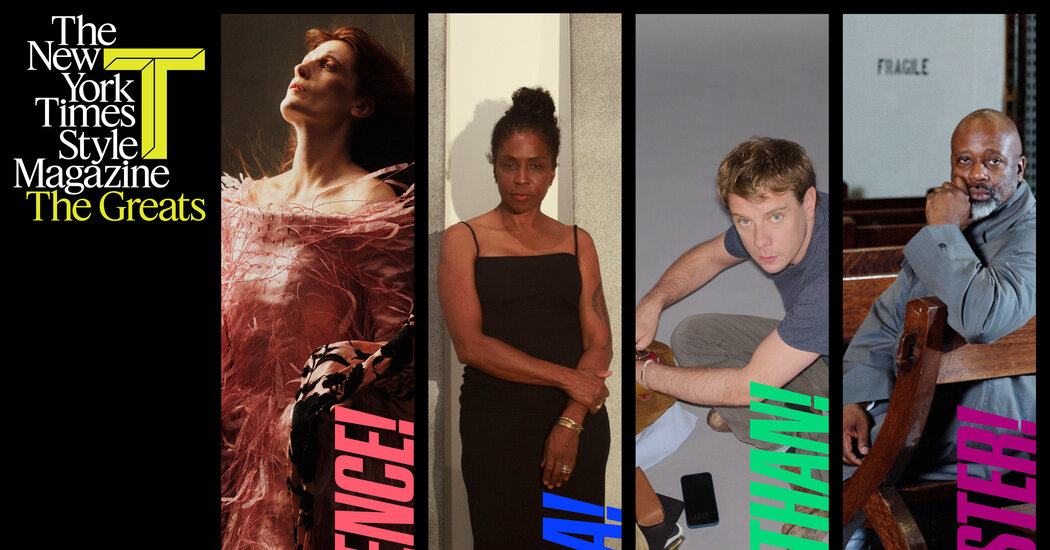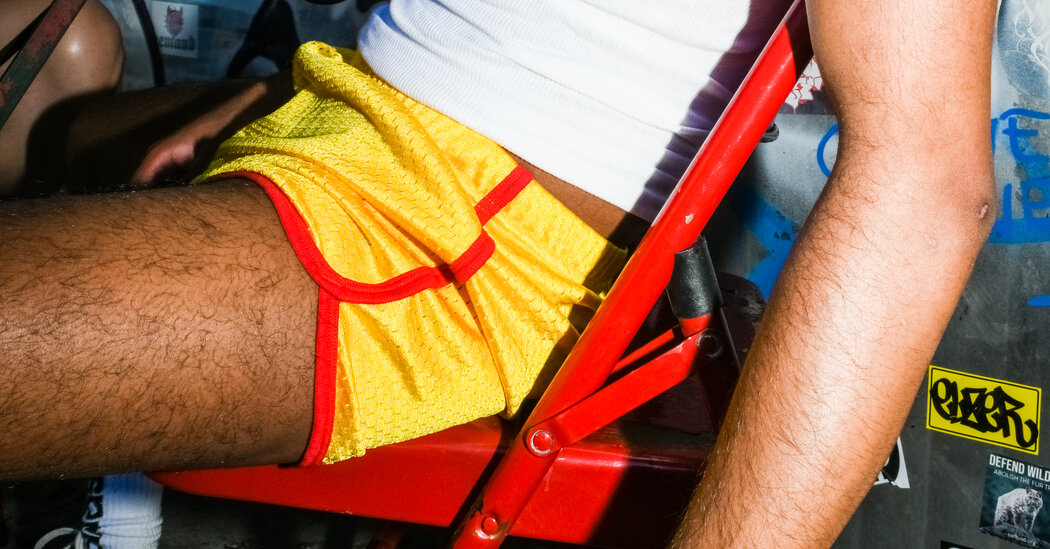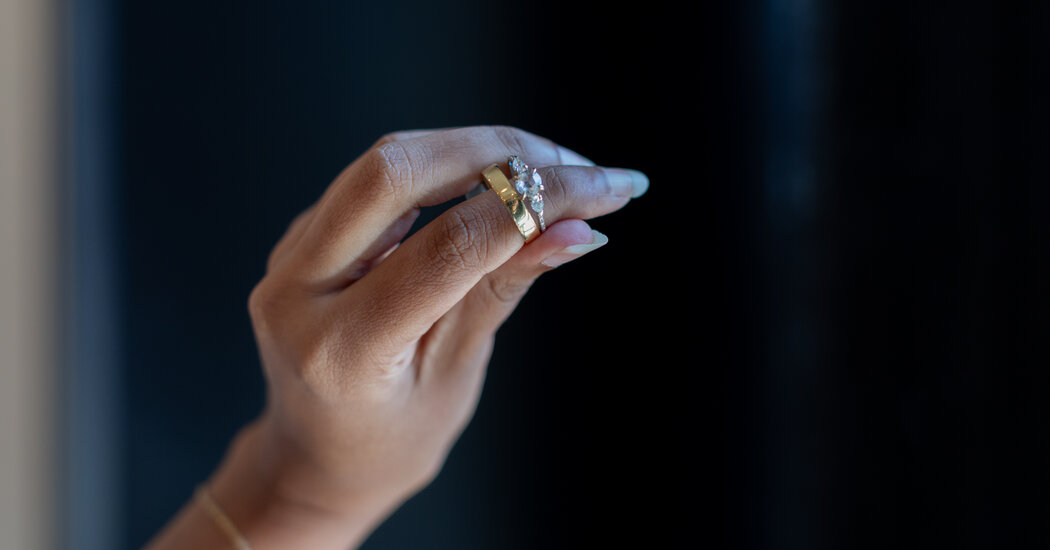Daniella Kallmeyer has been putting women in suits since the debut of her Kallmeyer label in 2012. It has taken that long for the rest of the fashion world to fall in love with them.
“We’ve been doing this from Day 1,” said Ms. Kallmeyer, who has been designing clothes for 15 years. “Just let women wear suits. It’s a uniform — men get to wear uniforms. Men get to have these signals and identifiers that are part of a code of dressing.”
Tailoring is what the label is known for. The actress Sarita Choudhury wore a Kallmeyer zebra-print trench on “And Just Like That …” She was also photographed after the Kallmeyer spring 2024 show in September in the label’s pleated black trousers and a white shirt with a long pointed collar.
The feminine aspect of her clothes “is always so secretly placed, never obvious,” Ms. Choudhury wrote in an email.
Queen Latifah was dressed in Kallmeyer for an October cover of T: The New York Times Style Magazine. Gwyneth Paltrow, Rachel Weisz, Christie Turlington and Chloe Fineman have all worn the label too.
“As I write this, I’m on my way to work in a Kallmeyer sweater, jacket and belt hahahaha,” Ms. Fineman, a cast member on “Saturday Night Live,” wrote in an email. She went on to praise several pieces she owns — jeans, cropped sweaters, blazers and a trench coat, adding, “At the end of the day, I’m just really happy to no longer wear sweatpants to work.”
The queer community, of which Ms. Kallmeyer is a part, has embraced the label. Kate McKinnon wore a Kallmeyer custom vest and trousers in bright pink — a departure for a line with a color palette that is largely somber — for the “Barbie” press tour and when hosting “Saturday Night Live.” Ms. Kallmeyer sewed a patch inside the suit that read “Gay Barbie,” a gesture that was widely shared on the internet.
There are plans to one day expand into men’s wear, but some men, like the interior designer Colin King, have already been shopping the existing collections. “I feel like people come to us now for suiting,” Ms. Kallmeyer said. “Once I have their attention, I’m like, ‘Let me show you the perfect T-shirt I have.’”
There are plenty of blazers and pants but also fringe suede jackets, bias-cut silk skirts that fall to the floor, thick cotton knit sweaters and loose jeans. There are knit tees and tanks that can be worn in different pairings.
“They are quite sweet and lady and very Carolyn Bessette,” Ms. Kallmeyer said, “but when you layer them, it suddenly becomes like ’90s Helmut Lang.”
“What’s cool,” she added, “is taking tailoring and saying, ‘How does tailoring build us a dress? Or what is a tailored jean so that you always feel put together even when you’re more relaxed,”
Ms. Kallmeyer, 37, was born in South Africa, but her family moved to Maryland when she was young. After high school, she moved to London to attend the London College of Fashion, where she received her BFA, and did a stint working at Alexander McQueen.
She thought she would stay in London, but her grandmother, to whom she was close, became ill, and, in 2009, Ms. Kallmeyer moved to the Riverdale neighborhood of the Bronx to live with her.
“I arrived back during fashion’s biggest hiring freeze,” she said. “I would walk into interviews and people would be like, ‘You’re our McQueen girl, but we have no money.’” So I did a lot of freelance.” She worked for Proenza Schouler and Alice + Olivia.
“I became a little disillusioned with the fashion industry because it was truly a moment in fashion that I didn’t identify with,” she said. “This was around 2010, and there were peplums and fit and flare dresses, mismatching prints, leather patches on everything and extremely long cardigans. You couldn’t get a white button-down at a reasonable price that didn’t have a diamanté button or a ruffle down the placket. It was a hard era for someone who was discovering queerness through fashion.”
Ms. Kallmeyer also did not feel as if her interests were met with legacy brands like Brunello Cucinelli. Or the Row, which was founded a few years earlier. “The alternative,” she said, “was super-uppity luxury.”
Three years later, with $7,000 in savings, she started her own collection. “I was like, that’s enough money, right? All I have to do is make this collection and sell it,” she said, laughing.
But it did sell. In 2019, after a series of successful trunk shows, she opened a pop-up store on a then-obscure block of Orchard Street on the Lower East Side of Manhattan, near her studio apartment.
The pop-up was across the street from the aesthetician Christine Chin. “My client when I first opened was the kind of woman who comes in every four weeks because she has a standing appointment at Christine,” Ms. Kallmeyer said. The pop-up eventually became a permanent boutique.
The topic of high-profile female designers, and the perceived lack of them in the fashion world, is one that Ms. Kallmeyer is eager to engage in.
“I don’t shy away from it at all,” she said. “I’m not out here to say what’s wrong with male designers. Historically we’ve gotten so much incredible transformative fashion from male designers, and that has certainly driven a conversation, but I could speak for days about why there’s a different feeling to the clothes when women are designing them.”
In her design process, Ms. Kallmeyer thinks about things like how do we gesture differently when we’re wearing certain clothing? How do we sit or stand? How do we pose when our pockets are deeper? How do we walk down the street when our coat is blowing behind us in a particular way? And do we feel proud and strong?
“I have the added layer of being a queer woman who is designing without the male gaze in mind and really thinking about how women love themselves and what makes us feel good,” she said. ”
Her goal, as a designer and as a woman dressing herself, is to have a wardrobe that doesn’t have code switching. Said Ms. Kallmeyer: “The person you are on a Friday afternoon is the same person you are when you go to your friend’s wedding and the same person you are when you’re having drinks and the same person you are when you’re pitching to a boardroom.”







